Everton feel ‘vindicated’ after successful appeal – but a precedent has been set
The Toffees moved clear of the relegation zone in the Premier League after a 10-point deduction was reduced to six points but, as Richard Jolly outlines, there could be yet more adversity ahead
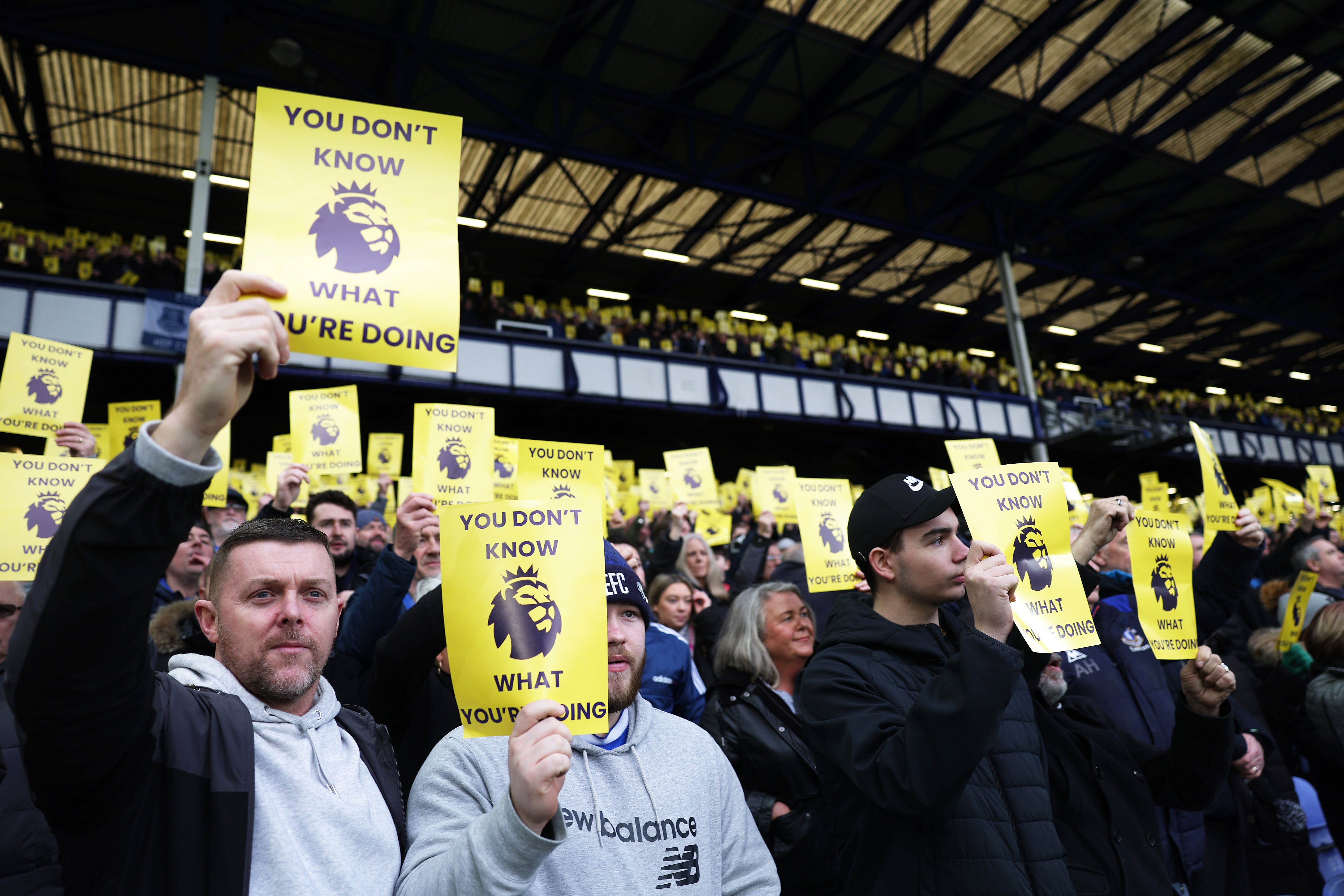
Deep into added time on Saturday, Lewis Dunk deducted two points from Everton with a headed equaliser for Brighton. On Monday lunchtime, the Premier League’s second independent commission restored four. Such is the strange reality of Everton in 2023-24, when the four pivotal dates may not involve Merseyside derbies or the first and final day.
Their fate will be determined in part by private hearings, independent commissions and expensive lawyers. They first had 10 points deduced for breaching Profitability and Sustainability Rules. That has now been reduced to six on appeal. They have a second charge and potentially a second appeal. There is an asterisk next to the league table, which suddenly showed Everton above Nottingham Forest and Brentford, but the equation can change again.
For now, Everton can pronounce themselves “vindicated” for appealing but an appeal board concluded they overspent, by the “significant” sum of £19.5m: losses of £105m are permitted over a three-year accounting period, with other spending on infrastructure permitted beyond that, plus clubs were allowed to write off further losses due to Covid.
But part of the grounds for grievance at Goodison Park was that they had been given the biggest penalty in Premier League history. That is no longer the case. Portsmouth were only deducted nine points for becoming insolvent and going into administration; now that punishment is 50 percent higher than Everton’s amended sanction.
The appeal board determined that fines, transfer bans or suspended points penalties are insufficient: and so a precedent has been set and the regulations have acquired some teeth. “Only a points deduction is appropriate for a breach of rule E.51,” they said. Everyone else has been warned.
Everton raised nine issues in their appeal. Seven were rejected, in some cases laughed out. Some had formed part of their original case to have passed FFP. They were not, for instance, right to argue they would have received £10m for “Player X”, who, in unexpected circumstances, became unavailable.
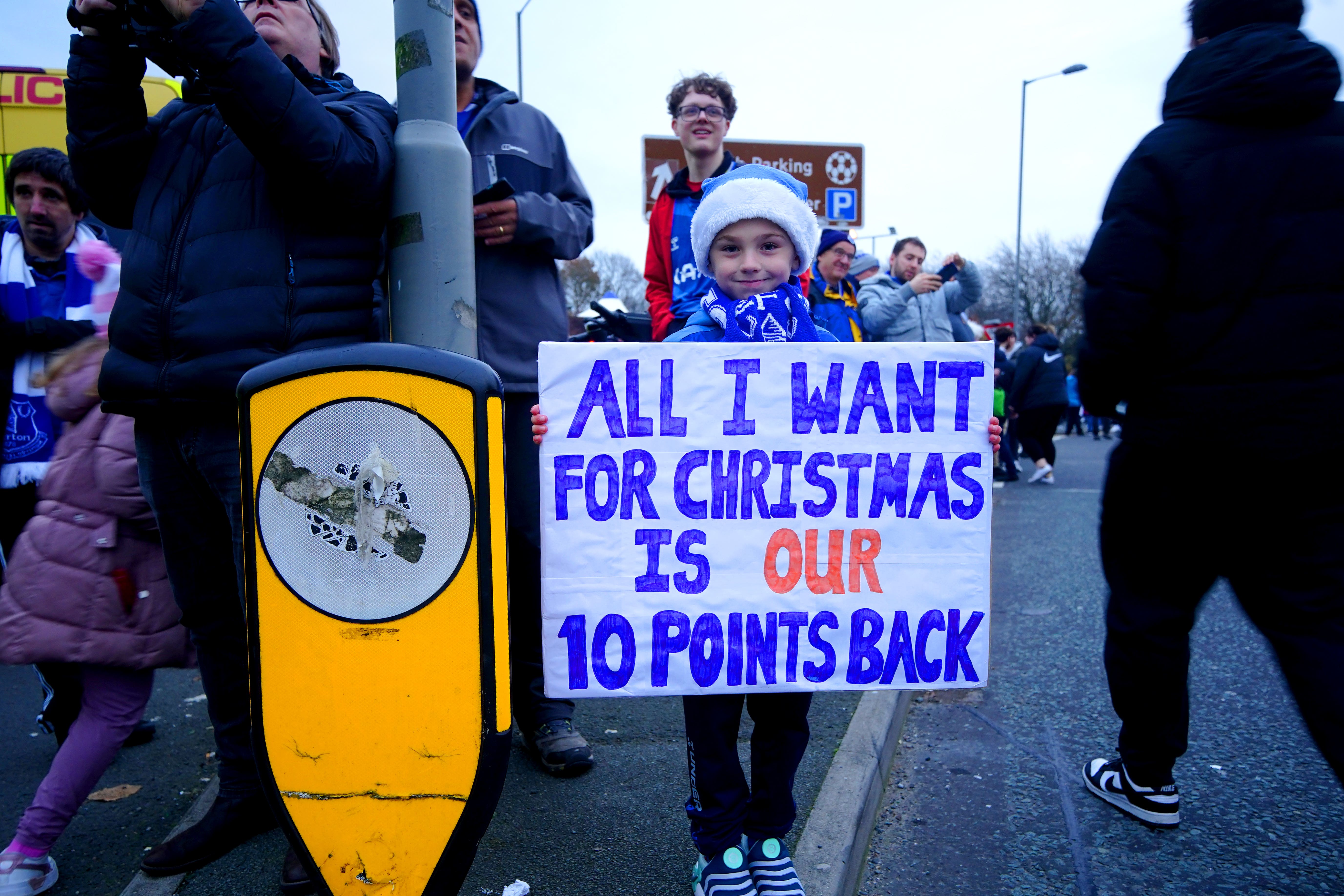
Nor could they claim because of the Russian invasion of Ukraine. It led to the loss of Alisher Usmanov’s sponsorship income – and perhaps no one will ever fully explain the levels of his entanglement with majority shareholder Farhad Moshiri and how much money the latter actually has – which has not been replaced. In each case, the appeal board argued that Everton should have done more to plan for contingencies. And from a PSR perspective, neither would have mattered had Everton not “imprudently sailed close to the wind”.
Because the pattern over the three-year accounting period (actually over four seasons, because two were rolled into one as Covid altered the economy) was that Everton wildly overspent over the first two and then made a belated and desperate attempt in the 2021-22 season to rein it back in; they had the lowest net spend in the division then, albeit aided by selling Richarlison after the campaign ended but before 30 June. The appeal board gave them “limited” credit for the improved trend, noting their losses for each of the two previous years was over £50m. “It was well aware of its obligation in FY22 [Financial Year 2021-22] to do better than break-even,” the appeal board reported.
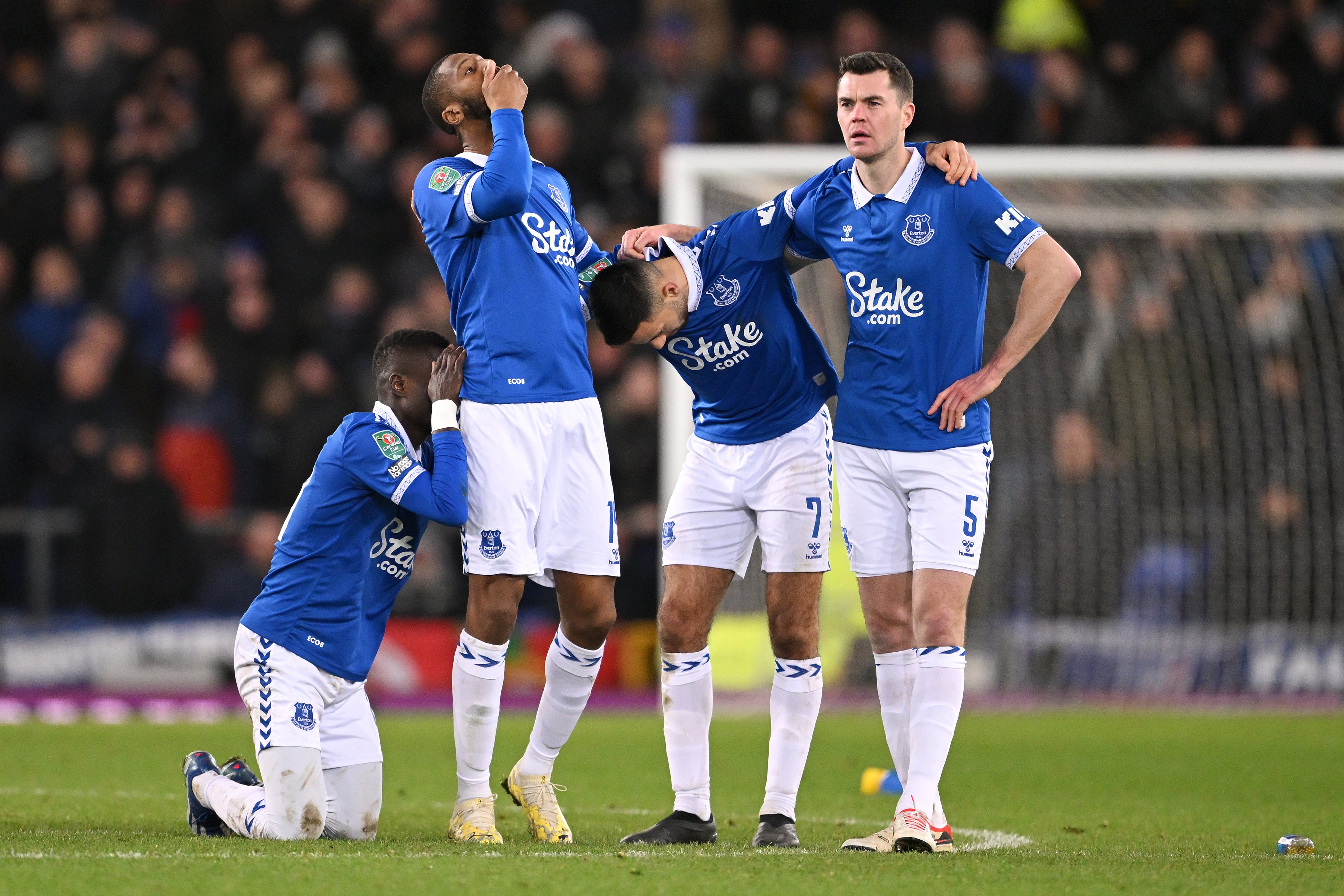
Nevertheless, and somewhat implausibly, Everton budgeted to finish sixth in 2021-22. They eventually came 16th. The appeal board referenced the idea that clubs who breached Financial Fair Play were seeking to gain a sporting advantage. The Moshiri years have given Everton a sporting disadvantage: rewind to David Moyes’ reign of low-expenditure overachievement and they were a model for prudence. Moshiri’s case that initial heavy spending was needed to bring in better players and in turn generate more revenue by qualifying for Europe was inherently risky. The underlying causes of huge overspending on wages and terrible transfers created a situation where Moshiri testified in the original hearings that Everton had a “non-existent” midfield.
But two of Everton’s points were upheld on appeal. The board ruled the independent commission had been wrong to say Everton were “less than frank” in reporting their position about loans used to pay for their new stadium at Bramley-Moore Dock; in short, it was ruled they were not dishonest. They nevertheless said Everton were “simply wrong” in their representation, and the club admitted submitting “objectively misleading” information to the Premier League.
That debt, in turn, is because Moshiri was no longer able to pay for the ground and provide the club with interest-free loans. But sanctions in many a walk of life tend to be lesser for those who comply with the authorities. Everton have always maintained they did.
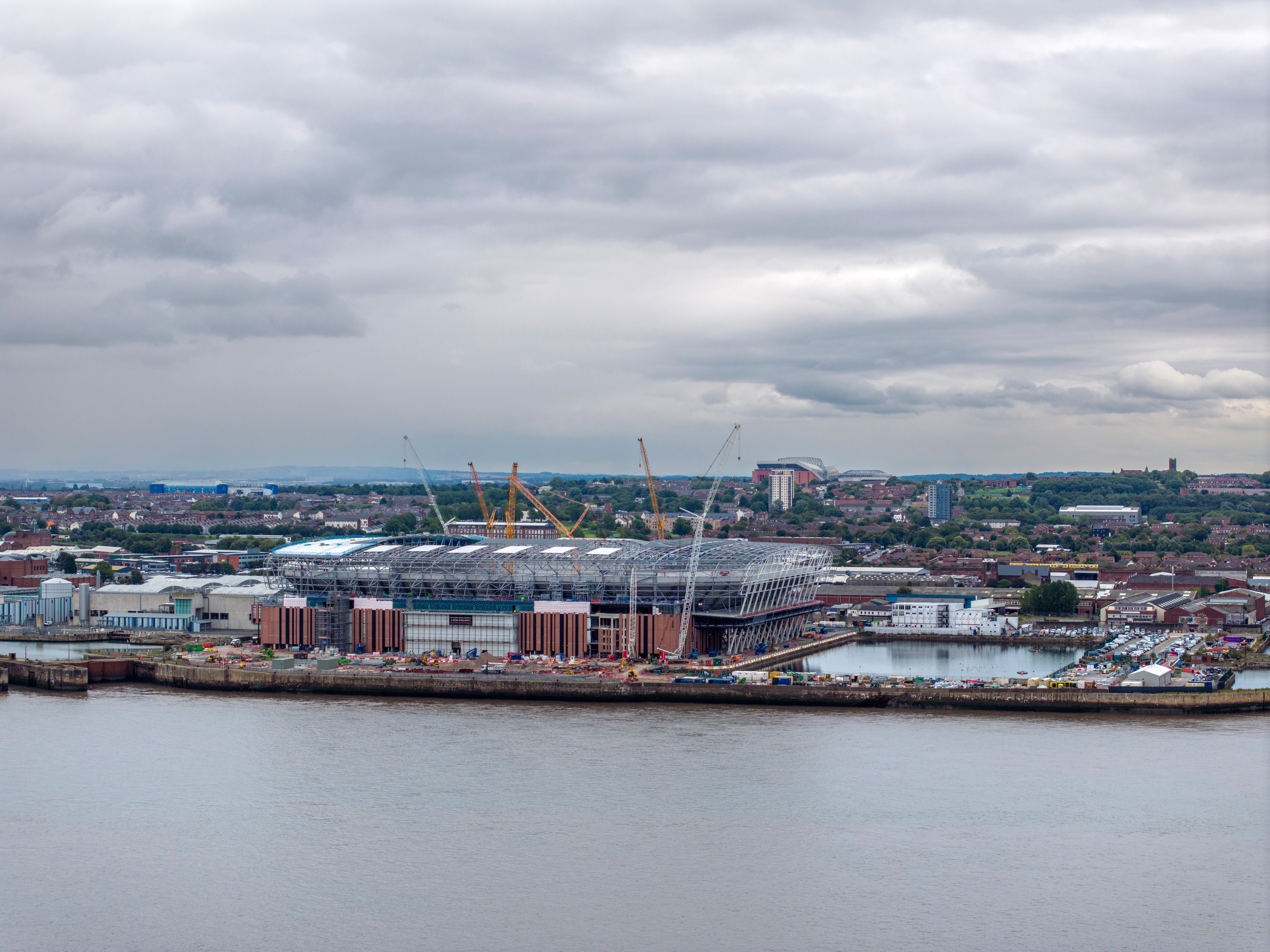
The second is that, while Everton were in effect the first case of its kind, “the commission should have appreciated that it was not exercising its wide discretion as to sanction in a complete vacuum”. There were other benchmarks, the appeal board determined, that should have been considered, including punishments handed out by the Football League. They cited the cases of Sheffield Wednesday and Derby, which the EFL heard, but also the different conditions between the divisions.
The ruling is that a points penalty is proportionate, but that 10 was excessive. It is, the appeal board noted, around 20 percent of the average number a club earns in a season. It is almost 30 percent of Everton’s meagre tally last season. There is a difficulty in correlating precisely how spending amounts to points and Everton’s points totals diminished after years of bad spending. Yet there is a sense that, for the integrity of the competition and to be fair to everyone else, those who breach spending limits must have a meaningful sanction. Those among Everton’s support who thought any points deduction was unjust will be disappointed.
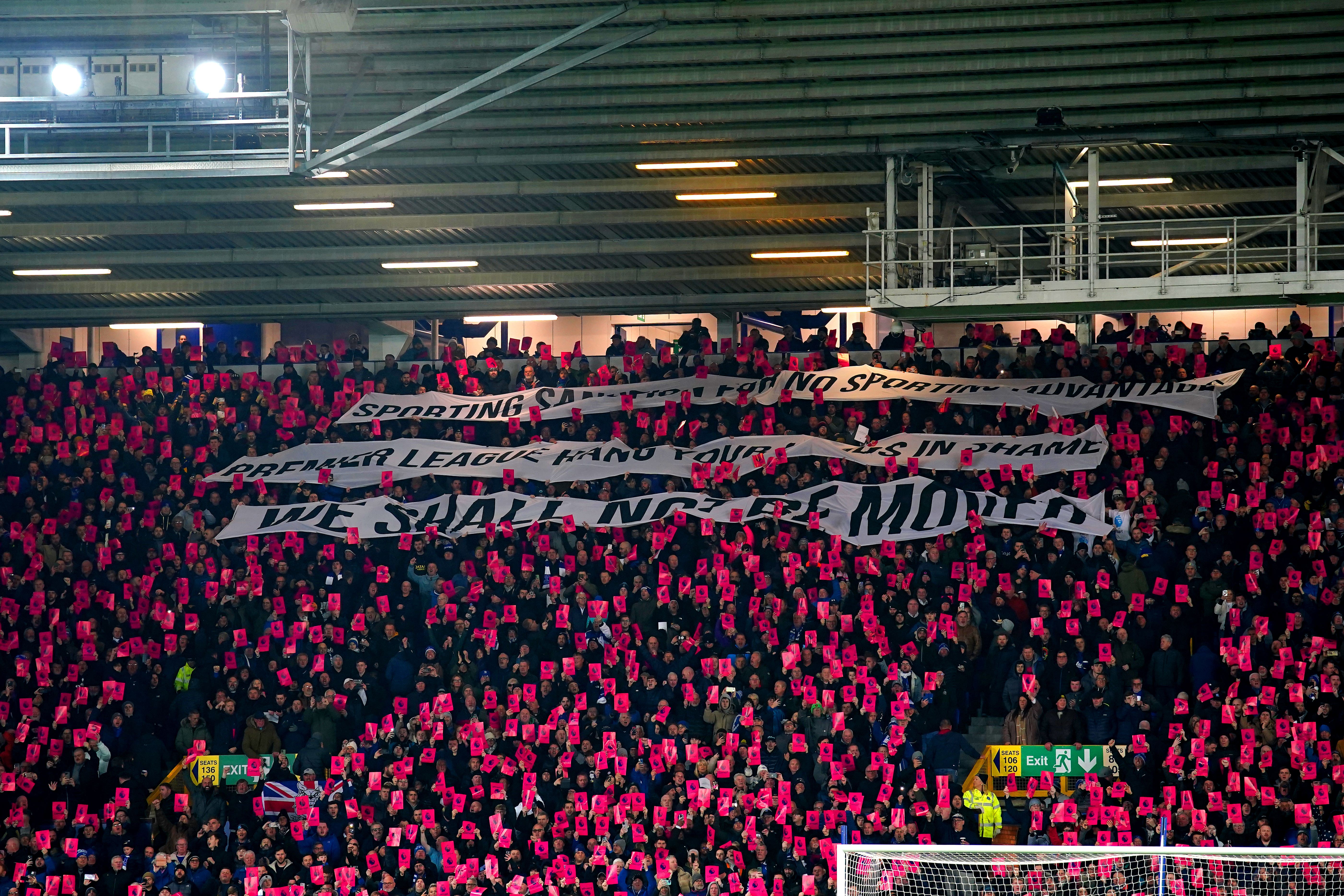
But now a precedent has been set, even if it does not automatically mean Nottingham Forest will lose six points for their own FFP breach. Then there is Everton’s second case, which a second independent commission will hear, and which covers 2019-23. The appeal board noted that “the PSR picture in FY23 showed an upturn”. So, for now, do Everton’s fortunes, even if the table could be adjusted again with a second points deduction.
Join our commenting forum
Join thought-provoking conversations, follow other Independent readers and see their replies
Comments
Bookmark popover
Removed from bookmarks